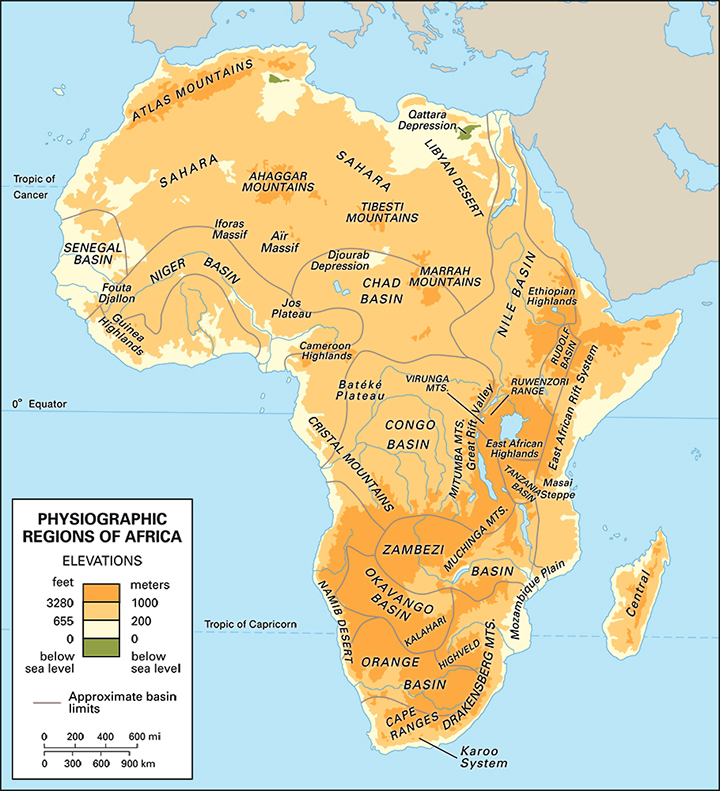Biodiversity & Environment
Disappearing African Rare Glaciers
- 20 Oct 2021
- 5 min read
Why in News
Recently, a report from the World Meteorological Organisation (WMO) stated that Africa's rare glaciers will disappear in the next two decades due to climate change.
- Their current retreat rates are higher than the global average. If this continues, it will lead to total de-glaciation by the 2040s.
- WMO is one of the specialized agencies of the United Nations (UN). It produces annually the State of the Global Climate Report.
Key Points
- Highlights of the Report:
- Africa is the continent that contributes least to global warming yet it is going to suffer the most.
- While African nations contribute less than 4% of global greenhouse gas emissions, the report underscored the outsize impact that changes in the climate are having on the continent’s 1.3 billion people.
- The last three mountain glaciers in Africa (Mount Kilimanjaro (Tanzania), Mount Kenya (Kenya) and the Ruwenzori Mountains (Uganda)) are receding at such a rapid pace that they could disappear within two decades.
- In sub-Saharan Africa, climate change could further lower gross domestic product by up to 3% by 2050.
- The cost of adapting to climate change in Africa will rise to $50 billion per year by 2050.
- The Indian Ocean island nation of Madagascar is one where “famine-like conditions” have been driven by climate change.
- The parts of South Sudan are seeing the worst flooding in almost 60 years.
- Further, massive displacement, hunger and increasing climate shocks such droughts and flooding are expected to increase in the future.
- This is having a major impact on disaster warnings for millions of people in Africa.
- Africa is the continent that contributes least to global warming yet it is going to suffer the most.
- Deglaciation:
- About:
- Glaciers, ice caps and continental ice sheets cover some 10% of the earth’s land surface at the present time, whereas during the ice ages, they covered about three times this amount.
- The present ice cover corresponds to about three-quarter of the world’s total freshwater resources.
- The gradual melting away of a glacier from the surface of a landmass is known as Deglaciation.
- The processes that remove snow, ice, and moraine from a glacier or ice sheet are called Ablation. It includes melting, evaporation, erosion, and calving.
- The process of deglaciation, which intensified in the 20th century, is leaving the planet iceless.
- Glaciers, ice caps and continental ice sheets cover some 10% of the earth’s land surface at the present time, whereas during the ice ages, they covered about three times this amount.
- Causes of Deglaciation:
- Global Warming: The atmospheric concentration of carbon dioxide, methane and other greenhouse gases (GHGs) produced by industry, transport, deforestation and burning fossil fuels, amongst other human activities, warm the planet and cause glaciers to melt.
- Ocean Warming: Oceans absorb 90% of the Earth's warmth, and this affects the melting of marine glaciers, which are mostly located near the poles.
- Rapid Industrialisation: Since the early 1900s, many glaciers around the world have been rapidly melting, specifically, since the industrial revolution, carbon dioxide and other greenhouse gas emissions have raised temperatures, even higher in the poles, and as a result, glaciers are rapidly melting, calving off into the sea and retreating on land.
- About:
Way Forward
- Increasing African Representation: Despite the threats ahead to the African continent, the voices of Africans have been less represented than richer regions at global climate summits like in IPCC reports.
- Thus, there is a need to increase African participation in all multilateral climate change negotiations.
- Mobilising Climate Finance: Overall, Africa will need investments of over $3 trillion in mitigation and adaptation by 2030 to implement its national climate plan.
- It will require significant, accessible and predictable inflows of green financing in Africa.







